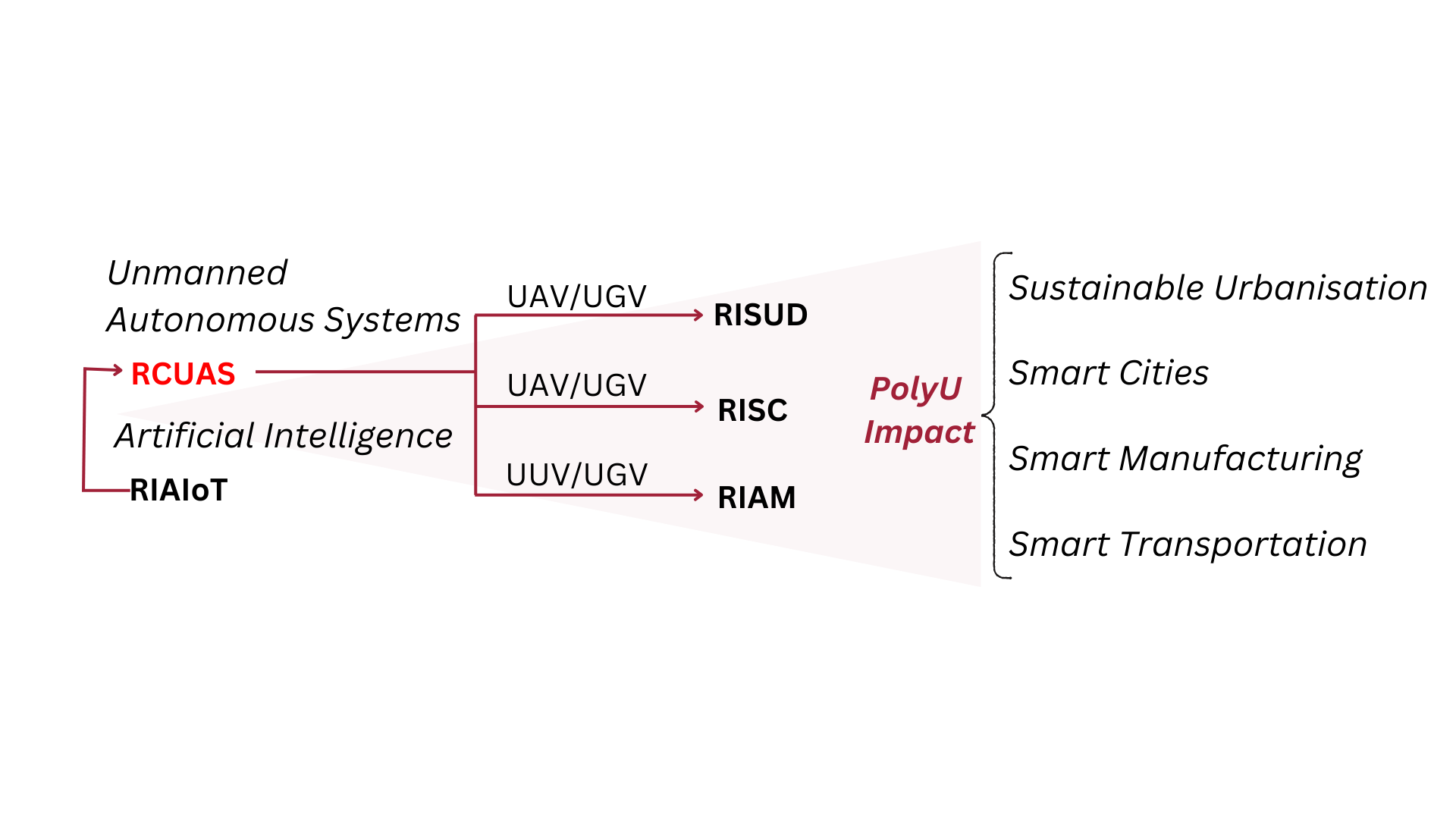Unmanned autonomous systems (UASs), including unmanned aerial vehicles (UAVs), unmanned ground vehicles (UGVs), and unmanned underwater vehicles (UUVs) are revolutionizing human society by alleviating the stress arising from the global trend of aging populations. Many countries and regions have developed policies for the critical strategic development of UASs. Hong Kong, Mainland China, and the rest of the world are undergoing a revolution arising from “Smart City” technologies.
For years, many UAS studies have been conducted by the PolyU. Several important research institutes (e.g., RISUD, SCRI and RIAM) was established to support research and development related to these new technologies. Research Centre for Unmanned Autonomous Systems (RCUAS) coordinates PolyU’s UAS researches and developments among different faculties/departments or institutes/centers, and facilitates PolyU’s internal and external collaboration with leading partners. RCUAS also plays an important role by providing physical UAS research and development platforms to synergize the impactful researches conducted in PolyU, exemplifying our motto, to learn and to apply, for the benefit of mankind (開物成務 勵學利民). The ultimate goal is to collaboratively increase society-oriented research that will have a positive impact on Hong Kong, the Greater Bay Area, and the Asia-Pacific region.
The fast development of urbanization and smart cities introduce urgent needs on the UAS to work in complex urbanized areas, such as the UGV, UAV, and UUV. Significantly, the GBA have strong demands for UAS, with applications ranging from intelligent transportation to intelligent manufacturing. Unlike the field environments with clear space and low traffic density where are commonly investigated scenarios by the existing research institutes, the densely urbanized scenarios introduce many additional but also fundamental challenges to the UAS. Fortunately, navigation and perceptions in urban canyons are the strong expertise of PolyU. In the past decades, PolyU devoted itself to solving the navigation problem in dense urban canyons and achieved fruitful recognition from both the academic and industry fields. The navigation research achievements from PolyU attracted the attention of industry. Moreover, PolyU also accumulated abundant research achievements in UAVs with applications to infrastructure inspection.
In addition to conventional UAS domains, RCUAS is actively expanding into the emerging field of Space and Humanoid Robotics. This area explores the integration of intelligent robotic systems into extreme and unstructured environments, such as outer space and disaster zones on Earth. Research focuses on the development of humanoid robots and exoskeleton systems capable of performing complex tasks in environments where conventional machines are limited. These systems are designed with advanced locomotion, dexterous manipulation, and adaptive learning, enabling them to assist in space station operations, planetary exploration, and hazardous environment intervention.
UAS is a research scope that can be widely applied across several important research institutes in PolyU, such as RISUD, SCRI, RIAIoT, and RIAM. The RCUAS will strive to enable these research institutes to achieve their objectives by providing physical UASs as integration platforms for various research and development projects and impactful applications. The proposed relationships between the RCUAS and other PolyU research institutes and research centres and their expected areas of impact are illustrated in the following figure.



